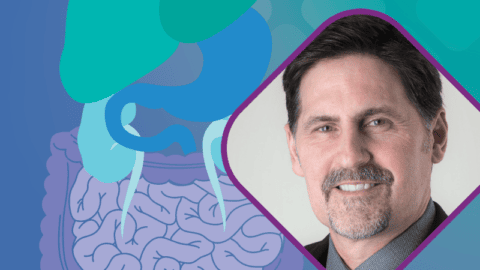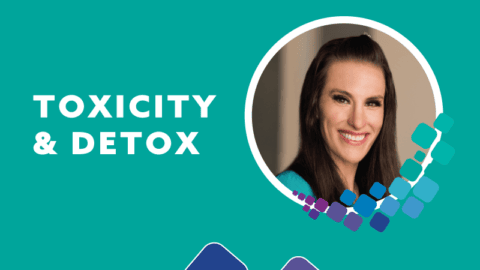The Importance of Diet
Since we all must eat to survive, let’s start with diet. When shopping for food it can be overwhelming to decide what to put in our carts. A general rule of thumb I like to use is shop the outside borders of the store. Here we typically find the fresh produce. Fruits and vegetables are key to any healthy diet. At each meal we should be striving to have half of our plate be full of fruits and veggies. These foods are full of vitamins, minerals, antioxidants, and phytochemicals that provide our body with the substances needed for human life. Many of the nutrients in these foods are cofactors for enzymatic reactions that take place daily in the human body. When shopping, fill your cart with nutrient-dense foods like apples, oranges, avocados, broccoli, cauliflower, sweet potatoes, peppers, garlic, onion, and the list goes on. A special note about leafy greens – they are very nutrient-dense, but if you suffer from high oxalates you should limit these in the diet. Always look for vibrantly colored foods like those that are purple, red, black, and blue, as these pack a higher density of antioxidants.
High quality protein, both animal and/or plant based is important to wellness and immune function. As these proteins are broken down into amino acids they are used in the regulation of T and B lymphocytes, macrophages and natural killer cells. They are needed in the production of antibodies and cytotoxic substances, which are crucial in an active infection. When purchasing animal proteins look for grass fed, organic meats and organic vegetable proteins, like nuts, seeds, legumes, etc. Fatty fish like salmon and sardines are full of omega fatty acids like DHA and EPA. Not only are omega-3 fatty acids a constituent of cell membrane structure, allowing for cell fluidity, they are well-known for their overall anti-inflammatory nature. DHA has also been shown to regulate macrophage function in their activation, enhancing production and secretion of chemokines, and their ability to phagocytize and destroy pathogens and infected cells. Omegas have also shown great promise in the regulation of neutrophil activity and production, and in T-cell regulation and differentiation. A diet rich in quality protein and omega fats will give the body daily support for decreasing inflammation and maintaining immune function. Whole grains should also be consumed as they are full of fiber, regulate bowel movements, and in moderation can reduce risk of blood glucose dysregulation. The key to general wellness is eating a diet high in a variety of whole foods like fruits, vegetables, quality protein, and whole grains.
Foods that we should either limit or eliminate in our diet are all encompassing as nutrient lacking. These are foods and beverages that are high in sugar, trans fats, low quality or no protein, hydrogenated oils, artificial sweeteners, preservatives, and artificial food dyes and colors. Substances like this are what we deem as calorie dense with little to no nutritional value. This means that when we consume foods like conventionally packaged baked goods, candy, soda, fried foods, fast foods, heat-and-eat frozen foods, etc., our body gains caloric energy but very little nutrition. If we work to replace these foods in our diets with nutrient-dense foods as described, just sitting down for a meal or snack will be a great wellness boosting activity that we conduct multiple times per day without even thinking about it.
Nutritional Supplementation
Additional nutritional supplementation can be considered for wellness and overall immune function and should be considered just that, a supplement. Supplements are great in that they can help replenish what is missed in the diet, but they are not meant to replace a healthful diet. Some nutrients I find helpful as a daily addition include a multivitamin, vitamin C, vitamin D, and fish oil. During the cold/flu season I like to increase my defenses by adding zinc, colostrum, vitamin A (either by itself or via cod liver oil) and select herbs. For general maintenance, consider adding a quality multivitamin once a day and vitamin C twice a day as this vitamin allows phagocytes and T-cells to perform their immune functions. If you live a lifestyle that doesn’t allow for much time in the sun you may consider adding vitamin D to your list. I suggest getting your levels checked before adding this vitamin because in high doses it is toxic. Zinc acts to regulate immune function, decrease NF-kB activity, and is anti-inflammatory. Cod liver oil is a great way to incorporate a maintenance dose of vitamins D and A during the cold/flu season. During active disease, increasing vitamin A has shown to have anti-viral activity. When deficient mucosal regeneration is impaired after damage, there’s a diminished function of neutrophils, macrophages, and T-helper cells and B-cells. A diminished mucosal surface allows for increased infectivity of other pathogens that it encounters. Colostrum is useful as it is full of bioactive and immune boosting compounds like lactoferrin and lysozyme that support immune function and defend against pathogens. It is also rich in proline-rich polypeptides which helps stimulate the body to make its own immunoglobulins as a defense against invading pathogens. It also has shown many regenerative effects especially in the gut lining. Together these nutrients can support healthy immune function for preventing and supporting the body in fighting illness. Many of these supplements can be purchased through New Beginnings Nutritionals.

Some general supportive botanicals I like include nutritive teas like dandelion and nettles. Dandelion can be enjoyed as a tea or used in salad greens. It’s been shown to be hepatoprotective allowing the liver to function properly. Nettles is antiallergic and full of vitamins and minerals like carotenoids and calcium. Its anti-allergenic properties have been shown to decrease IFN-gamma, IL-6, IL-1, and TNF-alpha while improving symptoms of allergic rhinitis. It has also been shown to inhibit early stage infection of severe acute respiratory coronaviruses. By binding the virus’s glycoprotein it reduces its infectivity. Other immune supportive herbs that can be used include echinacea, elderberry, astragalus, and medicinal mushrooms like reishi, cordyceps, and turkey tail. During an active cold, typically caused by a viral infection, other herbs like scutellaria, ligusticum, and olive leaf are beneficial, as they are anti-viral. Scutellaria has been shown to inhibit the replication of the influenza A virus. I like to keep these on hand to support my system as needed. Keeping foods like garlic and onions as staples in the diet are helpful as the allicin found in these foods have been known to have anti-viral properties. Raw honey is another natural medicine I keep in my pantry. It is naturally antimicrobial and good for wound healing, plus it tastes delicious. Right before flu season I like to make a honey-based immune support with chopped garlic and onion infusion. One tablespoon a day is a great immune tonic and 2-3 tablespoons a day can be used for its anti-viral properties.

Outside of internal supports there are many other lifestyle factors that play a role in wellness and immune support. My favorite is physical activity. It’s something about getting my blood pumping and my muscles moving that is so stimulating yet relaxing to me. Engaging in regular physical activity not only helps to keep your muscles strong, regulate metabolic processes, reduce stress, and support adequate blood flow, but it works to support immune function. It improves immune defense strategies, can mediate anti-inflammatory pathways, improves immune regulation when done consistently, and can delay the onset of age-related dysfunction.

Keeping stress to a minimum is also beneficial. Not only does chronic stress lead to increasedrisk of chronic disease and fatigue, but it increases the body’s pro-inflammatory cytokines. The chronicity of stress creates an environment that is suitable for the reactivation of latent viruses like EBV, CMV, etc. This re-activation is a sign of the immune system’s loss of immunologic control over the virus and leads to increased stress of the immune system. Finding ways to relax each day is crucial to keeping stress at bay. Some activities you can engage in included mediation, exercise, or an enjoyable hobby. Other options, for especially hard days, include adding relaxing essential oils to a warm bath, taking a walk outside, or spending time with others that bring joy to your life, though that may be difficult right now, since we’re all supposed to be “social distancing”.

Other aspects of life to keep in mind for general wellness and immune support are sleep and hydration. Adequate sleep allows our body to properly process the happenings of our day. Repair and recovery are conducted during sleeping hours, with the immune system releasing cytokines to fight disease while we sleep. When sleep-deprived, these processes cannot be properly completed, leading to increased stress on the body and subsequently increased susceptibility to chronic disease.
Hydration is necessary for many reasons. Water is a major component of our body’s makeup and biochemistry. Without water, some reactions necessary for life cannot work efficiently and this adds stress to the body. It’s also needed as a transporter of nutrients throughout the body. This allows for the nutrients we eat to be delivered to their proper locations to conduct their immunologic activities.
SUMMARY
Overall, there are many things we can do on a daily basis to increase our wellness and boost immunity, particularly during a time when we may all be more at risk for viral infection. The biggest challenge is finding the time in the demanding world we live in. I find scheduling meditation and exercise into my days helpful in making sure I do them. Making these things a part of your lifestyle is the best way to ensure that you are living a life of wellness and supporting healthy immune function.
References
- Adhikari, B. M., Bajracharya, A., & Shrestha, A. K. (2015, August 7). Comparison of nutritional properties of Stinging nettle (Urtica dioica) flour with wheat and barley flours. Retrieved March 26, 2020, from https://onlinelibrary.wiley.com/doi/pdf/10.1002/fsn3.259
- Bakhshaee, M., Mohammad Pour, A. H., Esmaeili, M., Jabbari Azad, F., Alipour Talesh, G., Salehi, M., & Noorollahian Mohajer, M. (2017). Efficacy of Supportive Therapy of Allergic Rhinitis by Stinging Nettle (Urtica dioica) root extract: a Randomized, Double-Blind, Placebo- Controlled, Clinical Trial. Retrieved March 26, 2020, from https://www.ncbi.nlm.nih.gov/pmc/articles/PMC5963652/
- C.Niemana, D. (2018, November 16). The compelling link between physical activity and the body’s defense system. Retrieved March 26, 2020, from https://reader.elsevier.com/reader/sd/pii/S2095254618301005?token=1DF6DA45D8CCCA6038DE1FD145E3BB340BB61EDC5D28F876B19BDEAFCADB2A757CFACD3D7BBC680F4EFB2B802DAE52BC
- Gutiérrez, S., Svahn, S. L., & Johansson, M. E. (2019, October 11). Effects of Omega-3 Fatty Acids on Immune Cells. Retrieved March 26, 2020, from https://www.ncbi.nlm.nih.gov/pmc/articles/PMC6834330/
- Hosseini, B., Berthon, B. S., Saedisomeolia, A., Starkey, M. R., Collison, A., Wark, P. A. B., & Wood, L. G. (2018, July 1). Effects of fruit and vegetable consumption on inflammatory biomarkers and immune cell populations: a systematic literature review and meta-analysis. Retrieved from https://www.ncbi.nlm.nih.gov/pubmed/29931038
- Hour, M.-J., Huang, S.-H., Chang, C.-Y., Lin, Y.-K., Wang, C.-Y., Chang, Y.-S., & Lin, C.-W. (2013). Baicalein, Ethyl Acetate, and Chloroform Extracts of Scutellaria baicalensis Inhibit the Neuraminidase Activity of Pandemic 2009 H1N1 and Seasonal Influenza A Viruses. Retrieved March 31, 2020, from https://www.ncbi.nlm.nih.gov/pmc/articles/PMC3705751/
- Kumaki, Y., Wandersee, M. K., Smith, A. J., Zhou, Y., Simmons, G., Nelson, N. M., … Barnard, D. L. (2011, April). Inhibition of severe acute respiratory syndrome coronavirus replication in a lethal SARS-CoV BALB/c mouse model by stinging nettle lectin, Urtica dioica agglutinin. Retrieved from https://www.ncbi.nlm.nih.gov/pmc/articles/PMC3085190/
- Li, P., Yin, Y.-L., Li, D., Kim, S. W., & Wu, G. (2007, August). Amino acids and immune function. Retrieved from https://www.ncbi.nlm.nih.gov/pubmed/17403271
- Morey, J. N., Boggero, I. A., Scott, A. B., & Segerstrom, S. C. (2015, October 1). Current Directions in Stress and Human Immune Function. Retrieved March 26, 2020, from https://www.ncbi.nlm.nih.gov/pmc/articles/PMC4465119/
- Prasad, A. S. (2008). Zinc in human health: effect of zinc on immune cells. Retrieved March 26, 2020, from https://www.ncbi.nlm.nih.gov/pmc/articles/PMC2277319/
- Stephensen, C. B. (2001). Vitamin A, infection, and immune function. Retrieved March 26, 2020, from https://www.ncbi.nlm.nih.gov/pubmed/11375434
- Ströhle, A., & Hahn, A. (2009, February). Vitamin C and immune function. Retrieved March 26, 2020, from https://www.ncbi.nlm.nih.gov/pubmed/19263912
- Uruakpa, F. O., Ismond, M. A. H., & Akobundu, E. N. T. (2002, June 4). Colostrum and its benefits: a review. Retrieved March 27, 2020, from https://www.sciencedirect.com/science/article/pii/S0271531702003731
- Wirngo, F. E., Lambert, M. N., & Jeppesen, P. B. (2016). The Physiological Effects of Dandelion (Taraxacum Officinale) in Type 2 Diabetes. Retrieved March 26, 2020, from https://www.ncbi.nlm.nih.gov/pmc/articles/PMC5553762/




